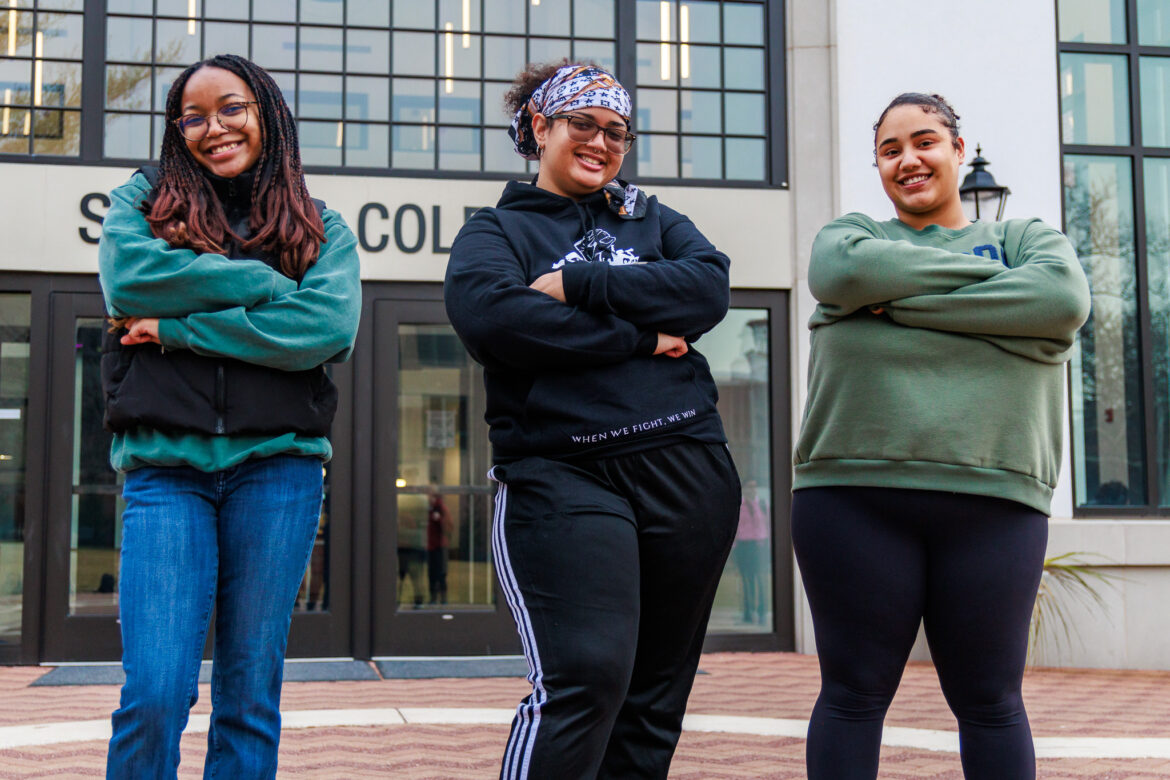Montclair State University’s chapter of the National Association for the Advancement of Colored People (NAACP) is a student-led organization that aims to disrupt inequality and promote inclusivity in all areas of society. The chapter holds events and meetings that both advance the organization’s cause and uplift members.
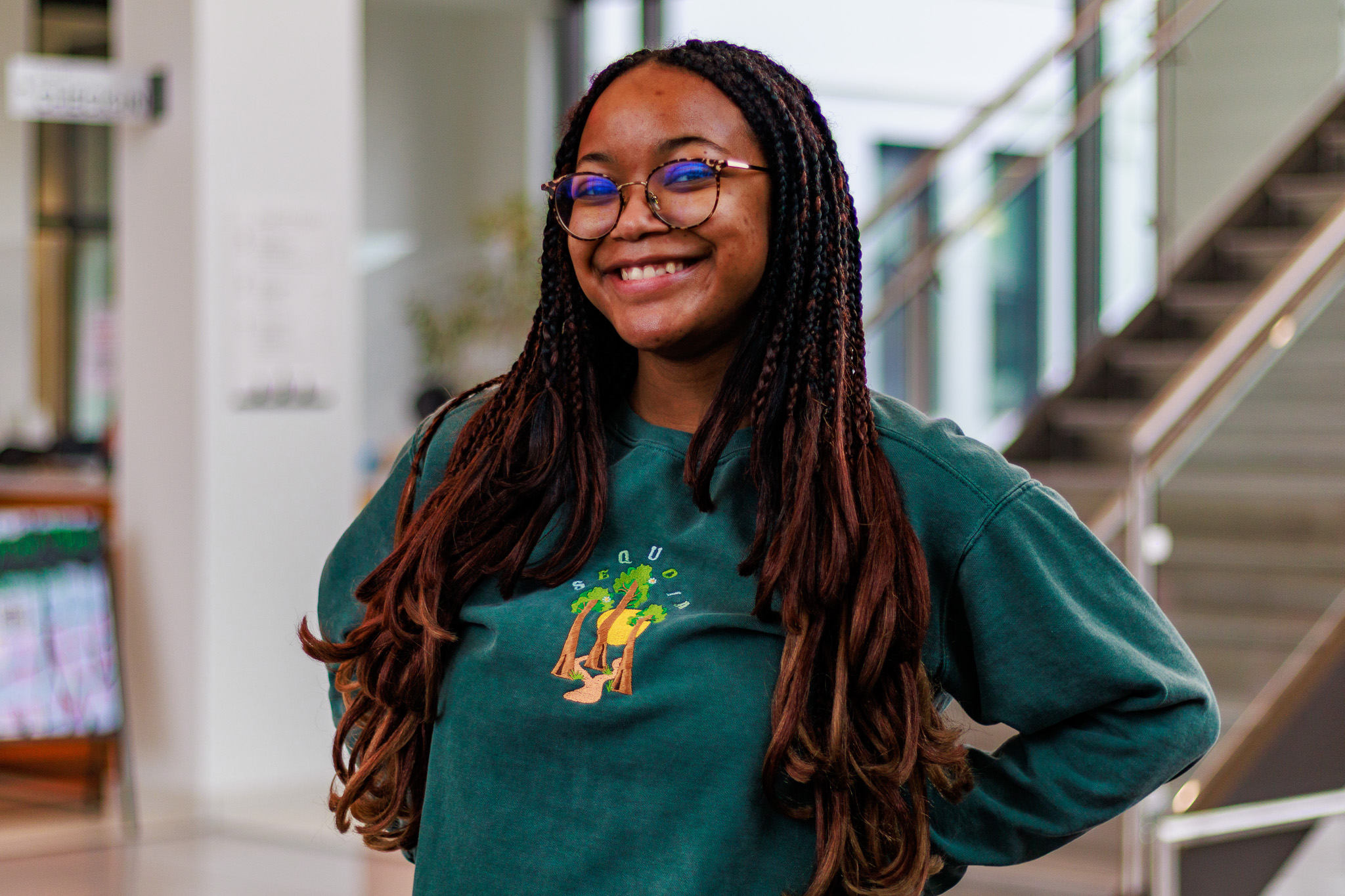
Junior student Nyah Vaughn is the president of the Montclair State NAACP chapter.
Sal DiMaggio | The Montclarion
Nyah Vaughn serves as the organization’s president. After joining the chapter during her freshman year, she has strived to create an environment that empowers everyone.
“We’ve always been inclusive,” Vaughn said. “[The NAACP is] never a club that’s exclusive to people of color. Anyone can join and we make them feel welcome. We have events that are pretty scattered – about hair, things like black culture, things that touch on different subjects that might interest [a wide variety of people].”
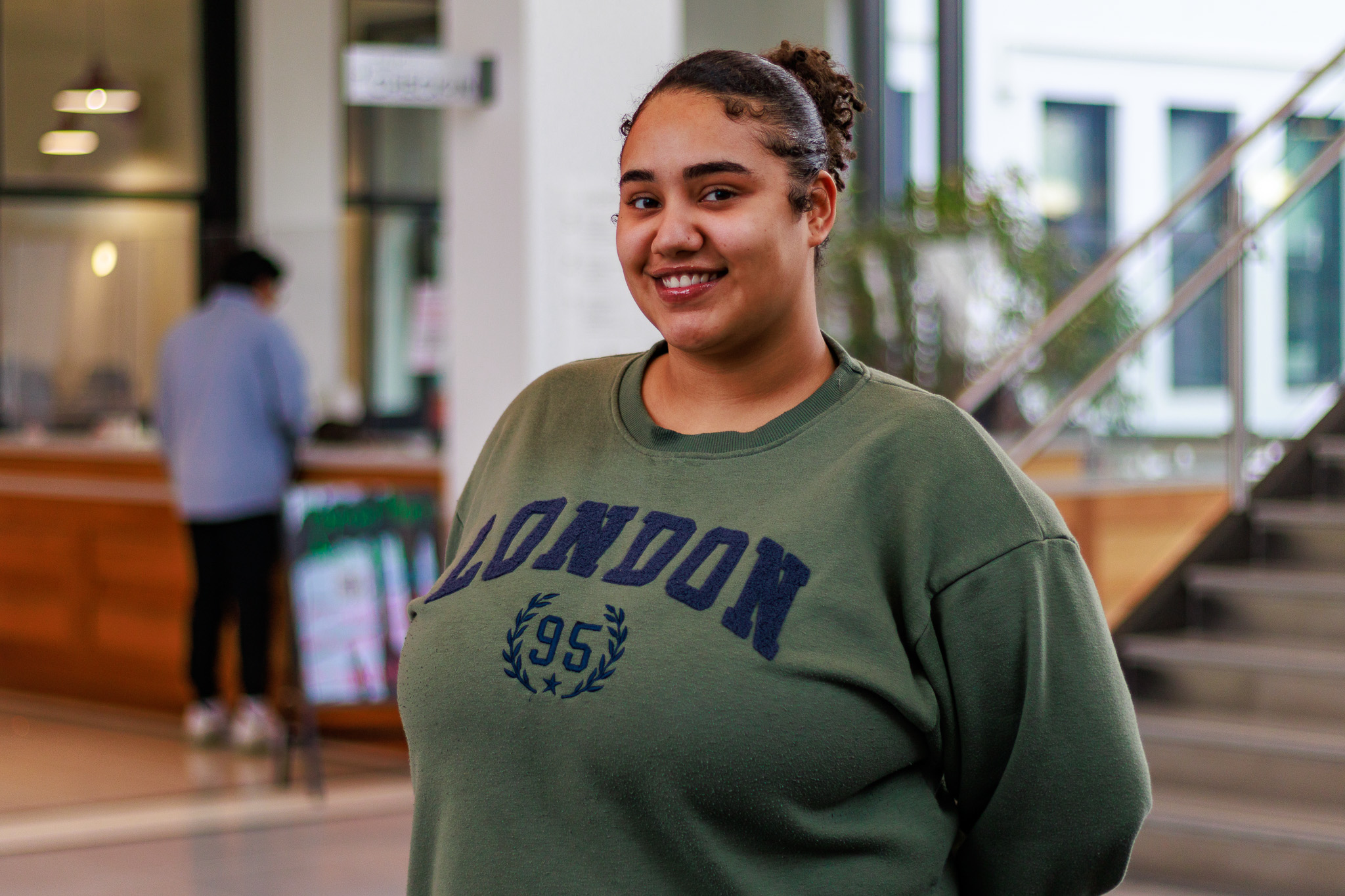
Janicxa Kernaghan served as the president and secretary of the NAACP before transitioning into an advisory position.
Sal DiMaggio | The Montclarion
Janicxa Kernaghan serves in an advisory role after finishing her term as president of the association last year. She believes in educating students and challenging misconceptions about the purpose of the NAACP.
“A lot of people look at the NAACP and [think of] protesting and fighting against crime,” Kernaghan said. “There’s a lot more [to it]… I want to educate people on what this organization is about, what [it] really stands for, why this organization is so important and how much being involved in the NAACP can actually help you so much in life. You’re part of a cause that’s so much bigger than you, so much bigger than Montclair [State], so much bigger than the state of New Jersey and even the United States.”
Being a part of a larger organization has its challenges, Kernaghan explained, primarily the lack of autonomy in event planning and executive decisions.
“It is a national organization,” Kernaghan said. “It’s not like we can freely do whatever we want, whenever we want, we still have people we need to answer to. We don’t have as much liberty as an organization that’s just a regular student grant organization on campus, or anything of that nature. It’s very stressful, to say the least.”
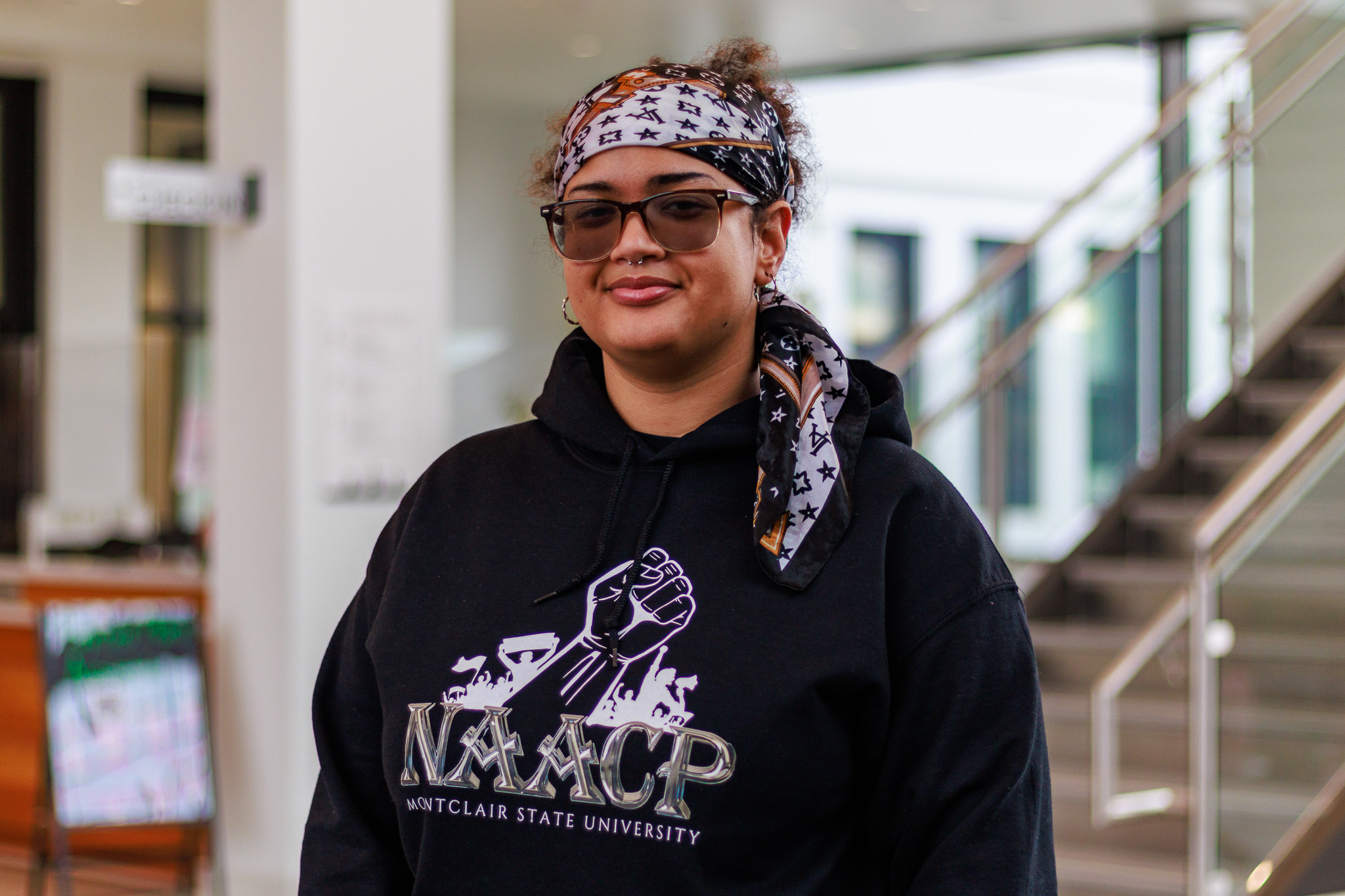
NAACP Vice President Valery Alcantara Tavarez began as Assistant to the President. Sal DiMaggio | The Montclarion
Valery Alcantara Tavarez is the Vice President of the NAACP chapter. She believes education in Black history is important for people who have not been exposed to it.
“I came from a predominantly Hispanic and Black background,” Alcantara Tavarez explained. “But you know, a lot of people don’t come from those [types] of towns, they come from [a town where] their material [consists of looking] at an American textbook, and they come to [the conclusion that] Black history is slavery. So I think because of the historical background we have, on this campus, specifically, we have a very big influence.”
Decreasing attendance to events and meetings is a big problem for the chapter, Alcantara Tavarez shared.
”[Since the COVID-19] pandemic, a lot of people are not involved,” Alcantara Tavarez said. “The numbers [have been] dwindling… so I think one of the biggest initiatives is to make sure our legacy continues.”
In March, the NAACP chapter hosted its annual “Don’t Touch My Hair” event – a favorite among members and non-members alike, according to Kernaghan.
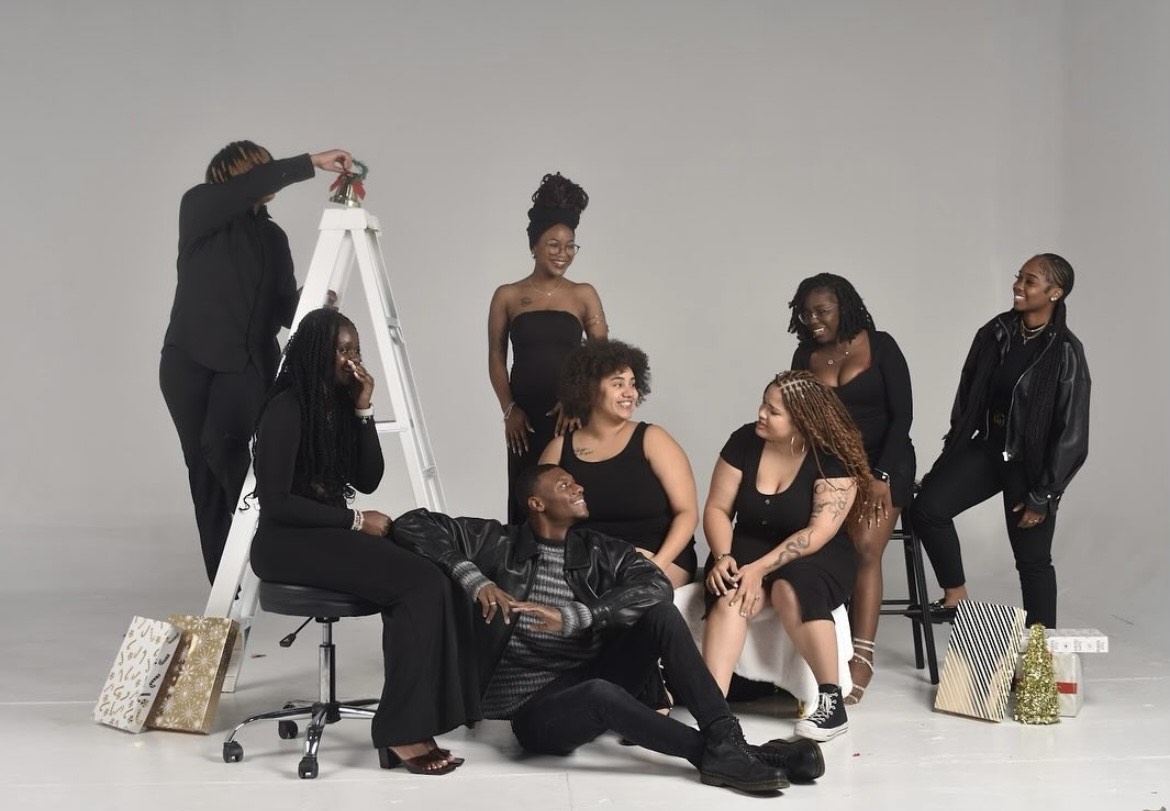
Photo courtesy of NAACP
“[The purpose of the event is] to embrace natural hair,” Kenarghan said. “We’re told [our natural hair is] unprofessional or weak. [People enjoy the event partially] because we’re giving free hair products and hair products are very expensive. But also, we’re giving you a space to embrace your hair however you want. And it goes with our initiative because we’re building a community for people to feel comfortable and be themselves authentically and holistically.”
Vaughn spoke more about the “Don’t Touch My Hair” event.
“It creates a space for people to feel safe and to learn more about their hair and how [it doesn’t always have] to be a complex thing,” Vaughn said. “You could just be yourself.”
The best way to support the organization’s cause, Vaughn says, is to attend meetings and events, which can be found on Engage.
“Honestly, I think the biggest thing is simply showing up,” Vaughn said. “I feel like that will help us kind of be able to spread our mission if people actually show up and promote what we have to offer. I think that is very beneficial.”

